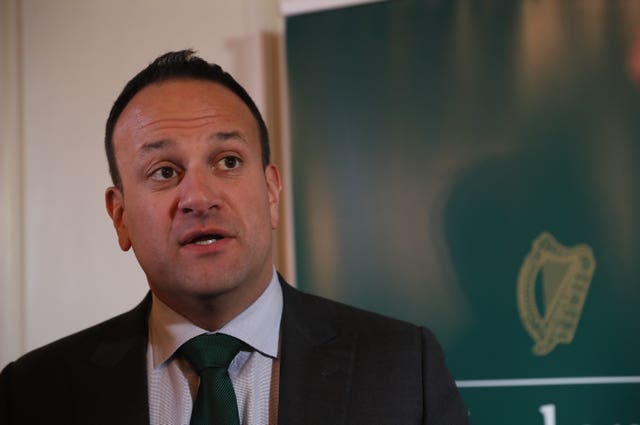
Irish leader Leo Varadkar has refused to discuss any potential delays at the border in the event of a no-deal Brexit, following a warning by the European Commission.
The Commission said “it is increasingly likely that the United Kingdom will leave the European Union without a deal on April 12”.
In a statement, the body said it had completed its preparations for a possible no-deal Brexit, which it said would cause “significant disruption for citizens and businesses” and “significant delays” at borders.
“In such a scenario, the UK’s relations with the EU would be governed by general international public law, including rules of the World Trade Organisation,” said the statement released in Brussels.
The Taoiseach refused to answer questions about the issue at a photocall event in Dublin, and stated only that he wished to see a deal ratified, and that the Commission’s statement was “just a statement of fact”.
“I’m still confident and I still think it’s likely we will have a deal,” he said.
“However, as every day passes, no-deal does become more likely. That’s just a statement of fact.
“So we’re intensifying our no-deal preparations. They have been very much under way now for months, if not years.

“They are being intensified and finalised at the moment. We need to see now what happens in Westminster over next couple of days and weeks and we’ll take it from there.”
Mr Varadkar then walked away, leaving Health Minister Simon Harris to field further questions.
“I’ve given up making predictions in relation to Brexit, but focus needs to stay very much on the House of Commons this week,” Mr Harris said.
“The ball is very firmly in Westminster’s court, and the EU has provided more time for Britain to make its decision, and that time needs to be used wisely, we need not just to hear what Britain is against, we need to hear what Britain wants as a way forward.”
Mr Harris said despite senior DUP MP Jeffrey Donaldson suggesting Ireland join the Commonwealth, he doesn’t see it happening.
“I don’t wish to see it arise, remember my party was the party that declared Ireland a republic,” he said.
“We are going to have to find new ways to work with the United Kingdom and continuing to wanting to work with the UK should they leave the European Union.
“There are lots of different views in relation to it, but I think we have a strong, deep, historical, personal relationship with the UK, I hope that continues and I don’t think that necessitates being a member of the Commonwealth.”


Comments: Our rules
We want our comments to be a lively and valuable part of our community - a place where readers can debate and engage with the most important local issues. The ability to comment on our stories is a privilege, not a right, however, and that privilege may be withdrawn if it is abused or misused.
Please report any comments that break our rules.
Read the rules here